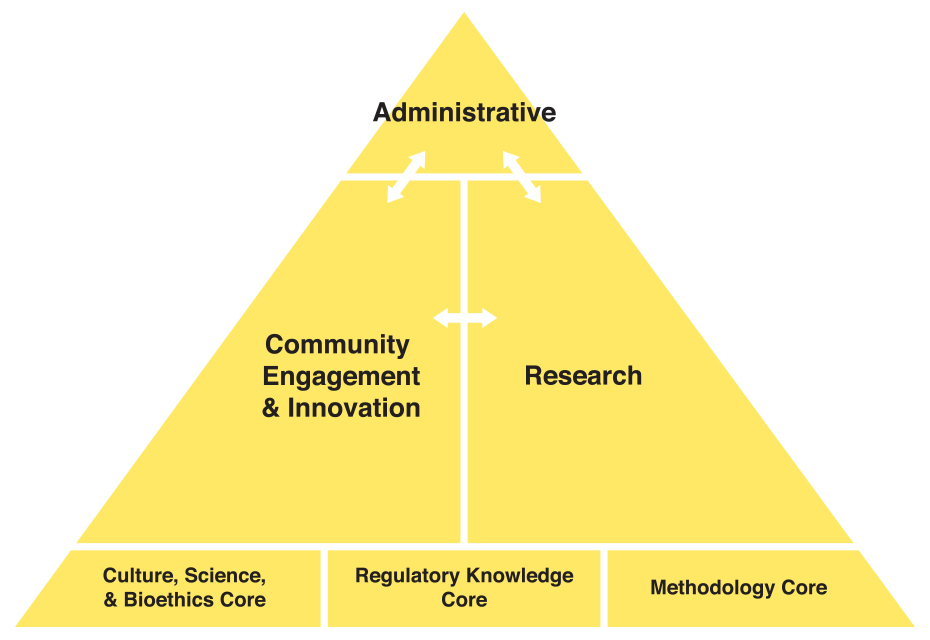The Collaborative Research Center for American Indian Health (CRCAIH-pronounced "KIRK-uh") was formed in September 2012 with a grant from the National Institute for Minority Health and Health Disparities.
MISSION: The Collaborative Research Center for American Indian Health (CRCAIH) is designed to create a platform to bring together Tribal communities and health researchers from multiple disciplines, to work together in conducting cutting-edge transdisciplinary research that addresses significant health disparities experienced by American Indians in South Dakota, North Dakota, and Minnesota.
Our goal is to build tribal research infrastructure and promote transdisciplinary research teams to improve American Indian health through examination of social and environmental influences on health.

The Research Division provides leadership to support the implementation of three large-scale research projects designed to accelerate the discovery of new interventions and expand the utilization/adaptation of existing evidence-based interventions for preventing, reducing and ultimately eliminating health disparities.
- Factors Influencing Pediatric Asthma (Best - PI)
- Culturally Targeted Education on Living Kidney Donation (Fahrenwald - PI)
- Emergency Department Use and Care in American Indian Children (Puumala - PI)
The Research Division also monitors and assesses progress and accomplishments of all research projects to ensure adequate progress according to defined timelines.
Using a Community-Based Participatory Research approach, the Community Engagement and Innovation Division (CEID) works with tribal partners in developing or strengthening research infrastructure through:
- Coordinating community engagement activities to meet tribal research agenda goals
- Building community/tribal capacity by identifying community health priorities, trainings, working groups or information resources
- Working with Community Liaisons to develop strategies that meet the community's health and research endeavors to reduce or address the community's health disparities
The Regulatory Knowledge Core (RKC) ensures responsible research. The five RKC focus areas include:
- Providing regulatory support for communities and researchers
- Educating and training communities and researchers
- Consulting
- Monitoring and controlling the quality of research projects
- Developing tribal research capabilities
The Methodology Core (MC) consults on the planning and design stages of studies. It provides data management services and also trains tribal communities and researchers in current data management methods. The MC advises on:
- Study design
- Data collection form design
- Report generation
- Statistical analysis
The Culture, Science and Bioethics Core (CSBC) mission is to facilitate ethical research that meets the cultural and contextual needs of tribal communities within the CRCAIH region by bridging aspects of traditional, western/academic, and policy sciences. Its aims are to:
- Develop and integrate training modules on research for AI/AN communities and health researchers.
- Work to develop collaborative efforts between CRCAIH and NCAI that utilize CRCAIH cores and advance research in the ND/SD/MN region.
Help CRCAIH disseminate products and resources to a national audience
The Administrative Division provides leadership to:
- Ensure all CRCAIH milestones/goals are met in a timely fashion
- Facilitate engagement of partners through promotion of timely and effective communication
In addition to the oversight and fiscal responsibilities, the Administrative Division heads the Annual Summit, Pilot Grants Program, and Evaluation.
Download CRCAIH info sheet (version 072018)